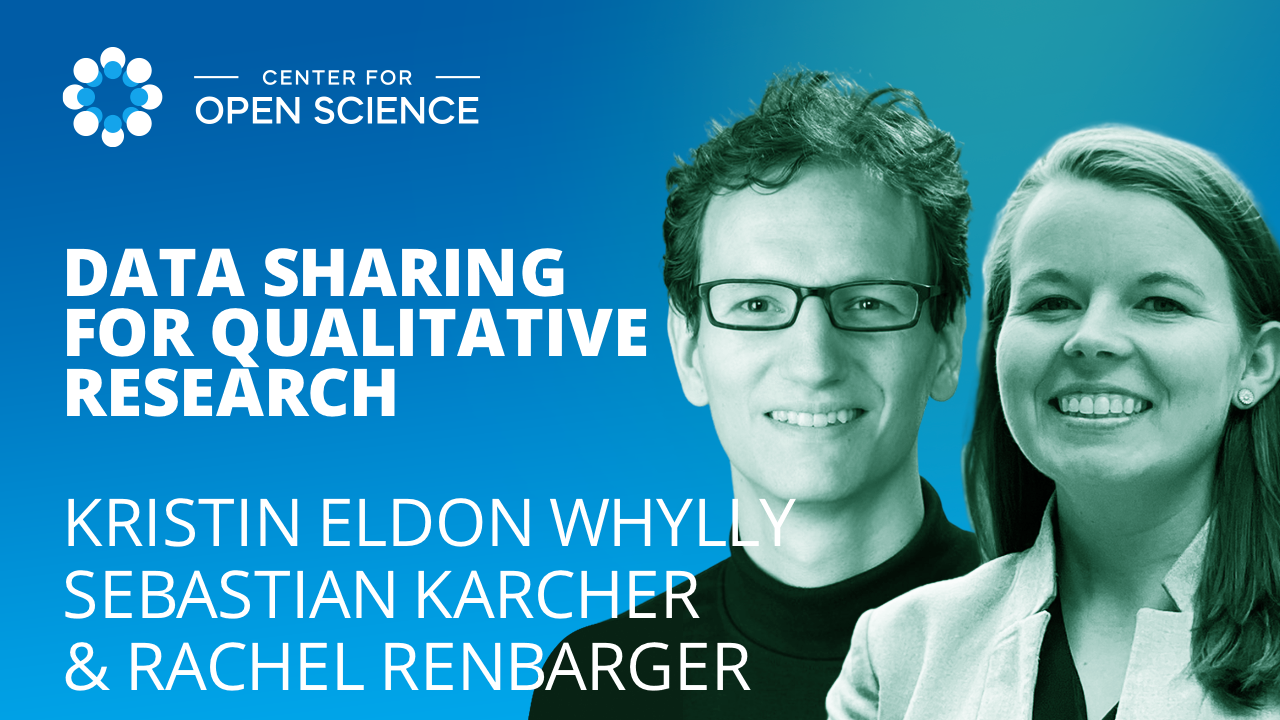
Researchers in the U.S. and elsewhere are increasingly expected to have data management and sharing plans. Recently, the White House Office of Science Technology & Policy (OSTP) released a memo outlining upcoming changes to data sharing policies at the federal level, and other organizations like the National Institutes of Health (NIH) have already planned changes for early 2023. Qualitative and mixed methods researchers have expressed some hesitation for these guidelines, which are not always clearly or equally applicable to qualitative research. Among these concerns include what counts as data (transcriptions, field notes, lab meeting notes), how to properly explain data sharing to participants, and how to minimize the risk for reidentification.
COS hosted a webinar on January 25, 2023 to discuss considerations from the perspective of a qualitative researcher, solutions to common concerns, and tips on preparing data management and sharing plans in alignment with federal and professional ethical guidelines.
Speakers:
Eldon Whylly kicked off the webinar by discussing the importance of open data from a funders’ perspective.
“We want the research we fund to have an impact and accelerate discovery,” said Eldon Whylly. “We also know that if the research data we fund is shared, the potential to accelerate discovery grows even larger.”
Eldon Whylly noted open data increases reproducibility and reuse, making it easier to get to new discoveries by building on existing research.
Renbarger tackled common questions from qualitative researchers ranging from what counts as data to ethical responsibilities around sharing participant data.
“We have both the participant side of things – what they actually say whether it’s audio or video,” said Renbarger. “We also have the researcher's perspective of what the researcher is adding because, in qualitative research, the researcher is a part of the study.”
“There are essentially three main areas that we hear people are concerned about when they think about sharing qualitative data,” said Karcher. He went on to identify ethics (consent, confidentiality, and access), context (can others understand the data?), and practicality (workload, timing, and other logistics) as those primary concerns, providing tips and resources to prepare data management and sharing plans.
Learn more by watching the full webinar and reviewing the slides. Interested researchers can also access the qualitative preregistration template on OSF Registries (preview the questions included in the template). If your community or organization would like to explore the benefits of a registry, reach out at contact@cos.io or go to our OSF Registries page to learn more.

6218 Georgia Avenue NW, Suite #1, Unit 3189
Washington, DC 20011
Email: contact@cos.io

Unless otherwise noted, this site is licensed under a Creative Commons Attribution 4.0 International (CC BY 4.0) License.
Responsible stewards of your support
COS has earned top recognition from Charity Navigator and Candid (formerly GuideStar) for our financial transparency and accountability to our mission. COS and the OSF were also awarded SOC2 accreditation in 2023 after an independent assessment of our security and procedures by the American Institute of CPAs (AICPA).
We invite all of our sponsors, partners, and members of the community to learn more about how our organization operates, our impact, our financial performance, and our nonprofit status.